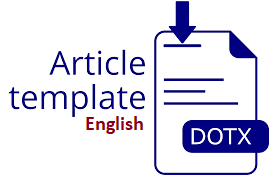Pengembangan Website Edukasi Kesehatan Balita dengan Menggunakan Metode Iterative Incremental
DOI:
https://doi.org/10.30865/klik.v5i1.1962Keywords:
Toddler Health Education; Website; Web Development; Laravel; Iterative Incremental; Black Box TestingAbstract
This study aims to develop a health education website for toddlers in Indonesia that provides relevant and comprehensive information to the community, especially parents. The study identifies issues in providing toddler health information and designs a website that facilitates access to this information. It also explores the technologies and methods needed for developing the website. The research methodology includes the Information Systems (IS) environment, which is divided into actors, organizations, and technology, as well as theories encompassing UML concepts, Laravel, and PHP. An Iterative Incremental approach is used for website development, including stages such as initial planning, planning, requirement, analysis and design, implementation, testing, and deployment. Testing is conducted using the Black Box Testing method. Data collection is carried out through literature studies, online surveys, and interviews with parents and health science students. Literature studies help build the theoretical foundation, provide current data, and identify best practices. Online surveys measure user needs and community awareness regarding toddler health issues, while interviews delve into user preferences and behaviors. The results show that the development of the toddler health education website in Indonesia successfully provides complete and relevant information, facilitating easy access for parents. The implementation using the Laravel framework and PHP programming language, along with testing using the Black Box Testing method, proved effective. Iterative evaluation improved the website's functionality based on user feedback. This study significantly contributes to the development of toddler health education media that meets the needs of the Indonesian community.
Downloads
References
H. Limanseto, “Wujudkan Visi ‘Indonesia Emas 2045’, Pemerintah Luncurkan Rencana Pembangunan Jangka Panjang Nasional (RPJPN) 2025-2045,” Kementerian Koordinator Bidang Perekonomian. Juni 2023. Diakses: 28 Desember 2023. [Daring]. Tersedia pada: https://ekon.go.id/publikasi/detail/5196/wujudkan-visi-indonesia-emas-2045-pemerintah-luncurkan-rencana-pembangunan-jangka-panjang-nasional-rpjpn-2025-2045
G. A. Palupi, “Prevalensi Stunting Indonesia Kian Landai, Pemerintah Targetkan 14% di 2024,” GoodStats. Diakses: 28 Desember 2023. [Daring]. Tersedia pada: https://goodstats.id/article/prevalensi-stunting-indonesia-kian-landai-pemerintah-targetkan-14-persen-di-2024-iETMt
Asian Development Bank, “Prevalence of Stunting among Children under 5 Years of Age,” Asian Development Bank. Diakses: 19 Maret 2024. [Daring]. Tersedia pada: https://kidb.adb.org/explore?filter[year]=2022&filter[indicator_id]=3020005&filter[economy_code]=SE%2CBRU%2CCAM%2CINO%2CLAO%2CMAL%2CMYA%2CPHI%2CSIN%2CTHA%2CTIM%2CVIE&showRegions=true&grouping=indicators
Similarweb, “Website Performance,” Similarweb. Diakses: 25 Juni 2024. [Daring]. Tersedia pada: https://secure.similarweb.com/account/login?returnUrl=https%3a%2f%2fpro.similarweb.com%2f#/digitalsuite/websiteanalysis/overview/website-performance/
K. Mulligan, S. P. Hirani, S. Harris, J. Taylor, L. R. Wedderburn, dan S. Newman, “The Effects of a Web-Based Tool for Parents of Children With Juvenile Idiopathic Arthritis: Randomized Controlled Trial,” J Med Internet Res, vol. 24, no. 5, hlm. e29787, Mei 2022, doi: 10.2196/29787.
K. D. Permana, R. Fauzi, dan S. Suakanto, “Pengembangan Backend Investasi Berbasis Website pada Ekosistem Digital Ihya dengan Metode Iterative Incremental,” JURIKOM (Jurnal Riset Komputer), vol. 9, no. 5, 2022, doi: 10.30865/jurikom.v9i5.4830.
I. Farobi, S. F. S. Gumilang, dan M. A. Hasibuan, “Web Application Design Using Single Page Application To Increase Website Performance on Rumantara,” dalam Proceedings of the 2018 International Conference on Industrial Enterprise and System Engineering (IcoIESE 2018), Paris, France: Atlantis Press, 2019. doi: 10.2991/icoiese-18.2019.11.
S. A. Sasongko, F. M. Al-anshary, dan A. Syahrina, “Perancangan Backend Dan Aplikasi Berbasis Website Untuk Startup Eataja Dengan Menggunakan Metode Iterative Incremental Design Of Backend And Website-Based Applications For Eataja Startup Using Iterative Incremental Method,” eProceedings of Engineering, vol. 8, no. 5, 2021.
M. R. Bimantoro, “Pengembangan Frontend Smart Dashboard Pada Sistem Pembacaan Meter Air Otomatis Berbasis Website Menggunakan Metode Iterative Incremental,” Telkom University, 2023.
I. Ahmad Faruqi, S. Fajar Surya Gumilang, dan M. Azani Hasibuan, “Perancangan Back-end Aplikasi Rumantara Dengan Gaya Arsitektur Rest Menggunakan Metode Iterative Incremental,” e-Proceeding of Engineering , vol. 5, no. 1, 2018.
S. Gada, “What is iterative and incremental development? Process, examples,” Log Rocket. Diakses: 5 Juli 2024. [Daring]. Tersedia pada: https://blog.logrocket.com/product-management/what-is-iterative-incremental-development-process-examples/
Z. Al Attar, T. F. Kusumasari, dan R. Fauzi, “Pengembangan Sistem Dashboard untuk Mengevaluasi Platform E-Marketplace dengan Metode Scrum pada Startup GRAVIS,” Jurnal Edukasi dan Penelitian Informatika (JEPIN), vol. 8, no. 3, 2022, doi: 10.26418/jp.v8i3.58782.
A. N. Fathoni dan U. Y. Oktiawati, “Blackbox Testing terhadap Prototipe Sistem Monitoring Kualitas Air Berbasis IoT (Blackbox Testing on Prototype of a Water Quality Monitoring System Based on IoT),” Jurnal Nasional Teknik Elektro dan Teknologi Informasi |, vol. 10, no. 4, 2021.
Subianto, “Sistem Informasi Pemesanan Pada Bidang Usaha Jasa Konveksi Berbasis Web,” Infokam, hlm. 109–115, 2019, Diakses: 12 Maret 2024. [Daring]. Tersedia pada: http://amikjtc.com/jurnal/index.php/jurnal/article/view/177
V. M. Adams dkk., “Scheduling incremental actions to build a comprehensive national protected area network for Papua New Guinea,” Conserv Sci Pract, vol. 3, no. 2, 2021, doi: 10.1111/csp2.354.
I. M. Ibrahim, “Iterative and Incremental Development Analysis Study of Vocational Career Information Systems,” International Journal of Software Engineering & Applications, vol. 11, no. 5, 2020, doi: 10.5121/ijsea.2020.11502.
O. Kautz, B. Rumpe, dan L. Wachtmeister, “Semantic Differencing of Use Case Diagrams,” Journal of Object Technology, vol. 21, no. 3, 2022, doi: 10.5381/jot.2022.21.3.a5.
B. Bhatt dan M. Nandu, “An Overview of Structural UML Diagrams,” International Research Journal of Engineering and Technology, 2021.
N. Anisa, “Perbedaan Deployment Diagram dan Component Diagram,” sis.binus.ac.id. Diakses: 6 Mei 2024. [Daring]. Tersedia pada: https://sis.binus.ac.id/2020/04/20/perbedaan-deployment-diagram-dan-component-diagram/
K. Wilson, C. Bell, L. Wilson, dan H. Witteman, “Agile research to complement agile development: a proposal for an mHealth research lifecycle,” NPJ Digit Med, vol. 1, no. 1, 2018, doi: 10.1038/s41746-018-0053-1.
Bila bermanfaat silahkan share artikel ini
Berikan Komentar Anda terhadap artikel Pengembangan Website Edukasi Kesehatan Balita dengan Menggunakan Metode Iterative Incremental
ARTICLE HISTORY
Issue
Section
Copyright (c) 2024 Abidzar Zulfa Arifa Kusyono, Taufik Nur Adi, Elvira Lailatuth Thohiroh

This work is licensed under a Creative Commons Attribution 4.0 International License.
Authors who publish with this journal agree to the following terms:
- Authors retain copyright and grant the journal right of first publication with the work simultaneously licensed under Creative Commons Attribution 4.0 International License that allows others to share the work with an acknowledgment of the work's authorship and initial publication in this journal.
- Authors are able to enter into separate, additional contractual arrangements for the non-exclusive distribution of the journal's published version of the work (e.g., post it to an institutional repository or publish it in a book), with an acknowledgment of its initial publication in this journal.
- Authors are permitted and encouraged to post their work online (e.g., in institutional repositories or on their website) prior to and during the submission process, as it can lead to productive exchanges, as well as earlier and greater citation of published work (Refer to The Effect of Open Access).
















